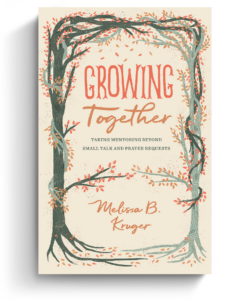
Pastoral Authority Evolves in the Digital Podcast Era
In today's digital age, pastors face new challenges as congregants increasingly turn to podcasts, YouTube videos, and social media for spiritual guidance. This shift represents more than just technological change – it's a fundamental transformation in how people discover and accept truth claims.
Traditional religious authority has evolved significantly. Where Western society once recognized religious leaders as primary truth sources, the Enlightenment first shifted authority to scientific rationalism. Now, digital technology has created another dramatic change, with authority moving toward online content creators and social media influencers.

Book cover: Growing Together
Modern pastoral authority functions as meta-epistemic authority – helping people determine which sources of knowledge to trust, rather than being the direct source of truth. This aligns with Paul's description of pastors as "servants of Christ and stewards of the mysteries of God" (1 Cor. 4:1).
Five key strategies for effective modern pastoral ministry:
- Build discernment through regular biblical teaching
- Actively engage with digital content alongside congregants
- Create collaborative learning environments for discussion
- Develop strong personal ministry relationships
- Maintain Scripture as the central authority
The digital revolution hasn't diminished pastoral ministry but refined it. Effective pastoral care now combines traditional shepherding with helping congregants navigate the complex digital information landscape. This approach offers what online voices cannot: embodied wisdom, personal presence, and experienced guidance in applying Scripture to life's complexities.
Modern pastors must help their congregations develop discernment skills while staying anchored in biblical truth. This involves creating spaces for open discussion, modeling thoughtful Scripture interpretation, and maintaining strong pastoral relationships that provide contextual wisdom beyond what any online resource can offer.
The future of pastoral authority lies not in competing with digital voices but in helping form mature disciples who can engage with contemporary teaching while remaining grounded in biblical truth. This evolving role demonstrates that pastoral authority stems from faithful guidance rather than institutional position alone.
Related Articles

Pope Francis vs. Trump: The True Meaning of Christianity

